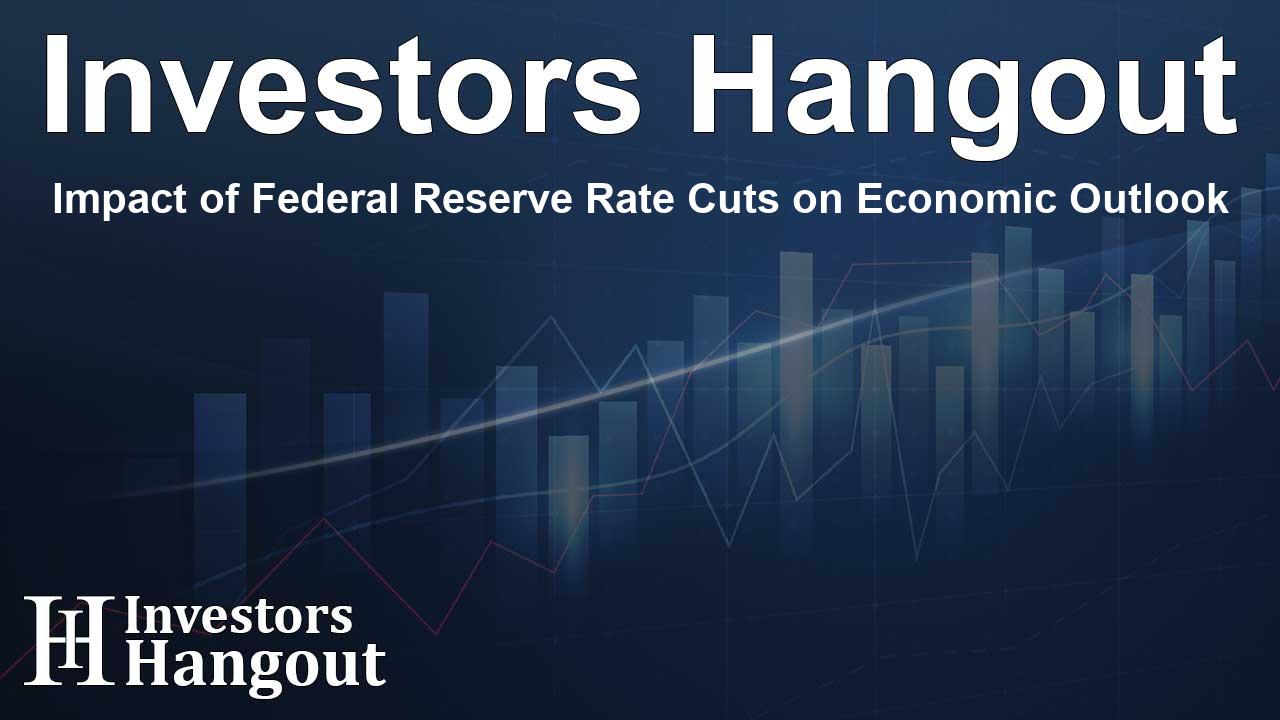Impact of Federal Reserve Rate Cuts on Economic Outlook

Understanding the Recent Federal Reserve Rate Cuts
The recent decision by the Federal Reserve to cut interest rates has sparked significant discussions among investors and economists alike. This critical move, the first of its kind in over four years, raises essential questions about the state of the economy and the central bank's strategy in managing inflation without triggering a downturn.
The Federal Reserve's Strategy Explained
On a notable Wednesday, the Fed implemented a substantial 50 basis point cut in borrowing costs. This decision was framed as a proactive measure, intended to bolster the economy rather than an urgent reaction to emerging economic signs. Prior to the meeting, market expectations fluctuated, and investors were caught between varying predictions about the Fed's action.
Market Reactions and Investor Sentiments
The immediate aftermath of the Fed's announcement saw a measured response from the markets. Stocks, bonds, and currency values displayed initial growth before stabilizing. Notably, the S&P 500 concluded the day with a modest decline but remains close to record levels, showcasing the current resilience of the stock market amid these shifts in monetary policy.
The Core Concerns About Economic Performance
Many stakeholders are now pondering whether the central bank's decisive action was timely enough to prevent an economic slowdown. The concept of a 'soft landing'—a scenario where the Fed successfully curbs inflation without leading the economy into recession—has been a focal point this year. However, the recent labor market indicators have stirred skepticism among some investors.
Future Implications for Investors
Market analysts are divided in their opinions regarding the Fed's latest decision. One perspective indicates that the sweeping reduction in rates might signal underlying concerns about economic health. This sentiment is echoed by investment professionals who highlight the increasingly cautious positioning of portfolios, leaning towards more stable investment-grade securities as a safeguard against potential downturns.
Performance of Stocks Post-Rate Cuts
Historically, the stock market tends to respond positively in the months following significant interest rate cuts, provided that the economy is not in recession. Analysis indicates an average increase of 14% in the S&P 500 within six months of the first rate reduction during expansionary periods, contrasting sharply with negative performance during downturns.
Adapting to Economic Signals
Rick Rieder from BlackRock emphasizes that investors may have overstated concerns stemming from weak labor indicators. He points to robust economic growth estimates that reflect ongoing strengths in the economy. The pivotal discourse revolves around whether recent data should dictate long-term market strategies.
Adjustments and Projections Ahead
As the Fed recalibrates its forecasts, it recognizes the need for focused adjustments to its rate strategies. Current projections suggest that while the funds rate will be reduced, it will still hover above what the market anticipates. This discrepancy could incite reactions in Treasury markets as they adjust to the updated outlook on interest rates.
Long-Term Economic Outlook
Looking ahead, uncertainties surrounding U.S. fiscal dynamics, including potential influences from upcoming elections, cast shadows over future rate policies. Observations indicate that geopolitical tensions and domestic economic conditions could influence the Fed's flexibility in maintaining desired inflation levels without compromising growth.
Frequently Asked Questions
What was the recent decision by the Federal Reserve?
The Federal Reserve recently lowered interest rates by 50 basis points, marking its first cut in over four years.
What implications does this rate cut have for the economy?
The rate cut is intended to stimulate economic growth and manage inflation without triggering a recession.
How do rate cuts typically affect stock performance?
Historically, rate cuts can lead to positive stock market performance, reflecting increased investor confidence, especially when not followed by recession.
What should investors consider following the Fed's decisions?
Investors should adjust their portfolios based on market responses and economic forecasts, focusing on more stable investments amidst potential economic uncertainties.
What is the outlook for future interest rate changes?
The Fed’s projections suggest that while deeper rate cuts may occur, they will likely remain above current market expectations.
About Investors Hangout
Investors Hangout is a leading online stock forum for financial discussion and learning, offering a wide range of free tools and resources. It draws in traders of all levels, who exchange market knowledge, investigate trading tactics, and keep an eye on industry developments in real time. Featuring financial articles, stock message boards, quotes, charts, company profiles, and live news updates. Through cooperative learning and a wealth of informational resources, it helps users from novices creating their first portfolios to experts honing their techniques. Join Investors Hangout today: https://investorshangout.com/
Disclaimer: The content of this article is solely for general informational purposes only; it does not represent legal, financial, or investment advice. Investors Hangout does not offer financial advice; the author is not a licensed financial advisor. Consult a qualified advisor before making any financial or investment decisions based on this article. The author's interpretation of publicly available data shapes the opinions presented here; as a result, they should not be taken as advice to purchase, sell, or hold any securities mentioned or any other investments. The author does not guarantee the accuracy, completeness, or timeliness of any material, providing it "as is." Information and market conditions may change; past performance is not indicative of future outcomes. If any of the material offered here is inaccurate, please contact us for corrections.